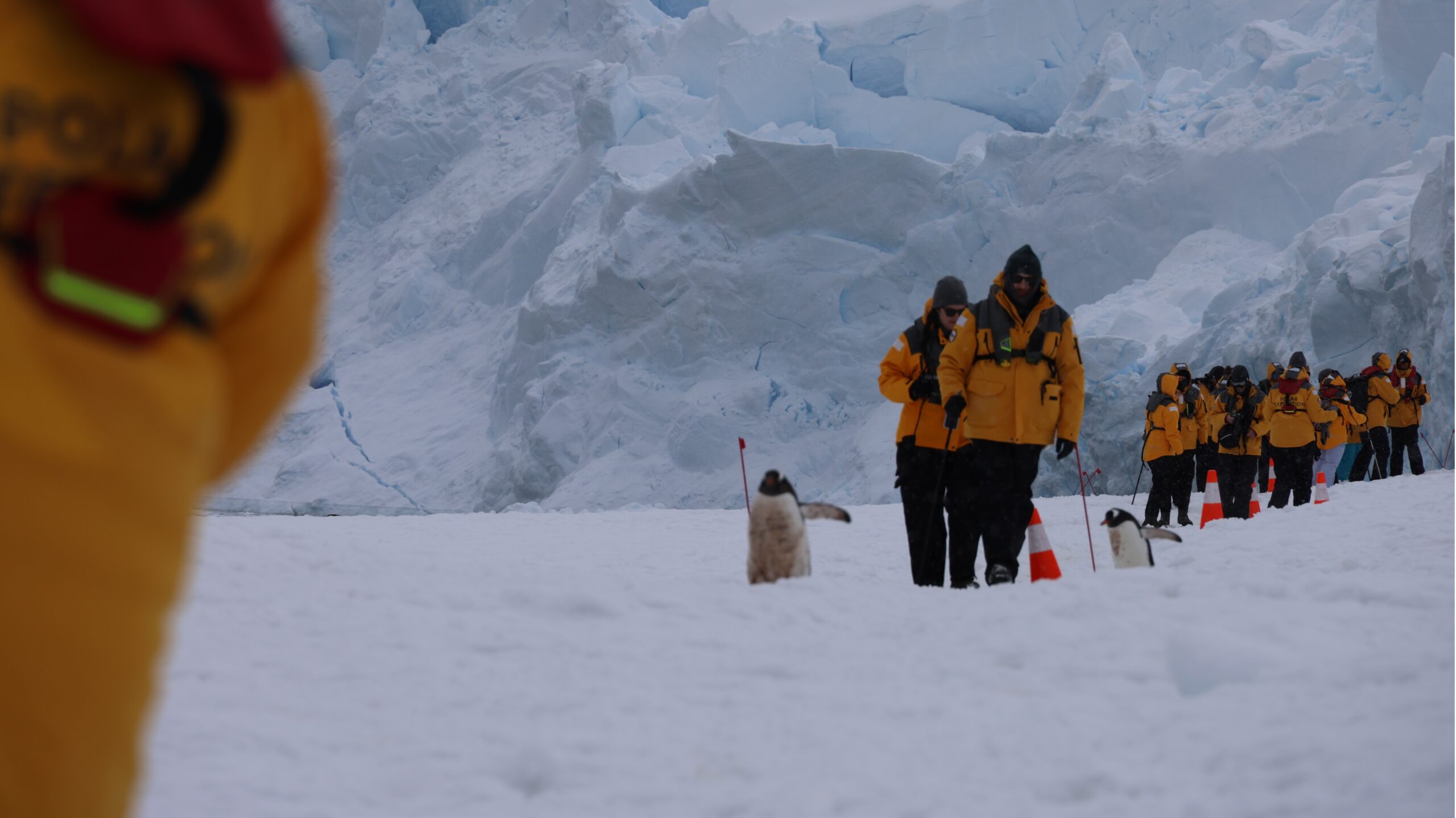First Aid Training in Antarctica
Antarctica, the world’s final frontier, is an unparalleled destination for adventure and exploration. Cruise ship guides operating in this remote and unforgiving environment face unique challenges, requiring specialised first aid training to ensure the safety of their passengers and colleagues. From cold water shocks to injuries on slippery decks, the ability to respond effectively to emergencies is vital in this extreme setting.

Preparing for the Unique Risks of Antarctica
Antarctica’s harsh conditions present specific hazards that cruise ship guides must be equipped to handle. Our tailored first aid course focuses on scenarios commonly encountered in this environment, providing guides with the confidence and skills to act decisively when accidents happen.
CPR for Drowning and Cold Water Shock
The icy waters of Antarctica are unforgiving, with temperatures that can incapacitate a person in minutes. Drownings and cold water shock are significant risks during zodiac excursions and landings.
• Cold Water Shock: Participants learn how to recognise the symptoms of cold water shock, including gasping, hyperventilation, and cardiac arrest. Practical training includes safely retrieving casualties from water and managing their care post-rescue.
• CPR Techniques: Our course emphasises high-quality CPR for drowning victims, including adaptations for hypothermic casualties. Participants practice chest compressions and rescue breathing using realistic scenarios and manikins.
Responding to Falls and Trips
Falls are a leading cause of injury in Antarctic environments. Slippery decks, icy gangways, and uneven terrain during shore landings can result in sprains, fractures, or more serious injuries.
• Fall Scenarios: Guides practice stabilising and splinting injuries in tight, moving spaces like zodiac boats. We cover immobilising suspected fractures and preparing casualties for evacuation.
• Head and Spinal Injuries: Training includes recognising the symptoms of serious injuries and using techniques like cervical spine immobilisation to prevent further harm.
The Challenges of Onboard Emergencies
Onboard cruise ships, guides must be prepared for anything, from medical emergencies to handling the logistical challenges of remote evacuation.
• Accidents in Tight Quarters: Falls in confined spaces like stairwells and cabins are common. Our course teaches guides how to manage such incidents while working around space constraints.
• Immediate Evacuation Preparation: In remote regions, delays in professional medical care are inevitable. Participants learn to stabilise casualties and work with ship medical staff to prepare for helicopter or lifeboat evacuations.

Training in Ushuaia, Argentina
Our first aid courses for Antarctic guides are delivered in Ushuaia, Argentina—the gateway to Antarctica. This ensures participants are trained and acclimatised to the conditions they will face on their voyages. Courses incorporate realistic, scenario-based learning, simulating onboard and shore-based emergencies.
• Zodiac Boat Training: Guides practice handling emergencies during zodiac operations, including simulated falls and cold water rescues.
• Onboard Accident Scenarios: Participants work through realistic scenarios involving injuries on decks, gangways, and stairwells.
• Cold Environment Preparedness: Training includes managing hypothermia, frostbite, and other cold-related injuries, ensuring guides are ready for the Antarctic climate.
To book a course, or find out more about first aid training in Antarctica, contact us via email in the first instance. Cory Jones our Director is lead trainer for a range of organisations including First Aid Trainign Co-operative, Kingfisher Journeys and Adventure First Aid in Kenya.









